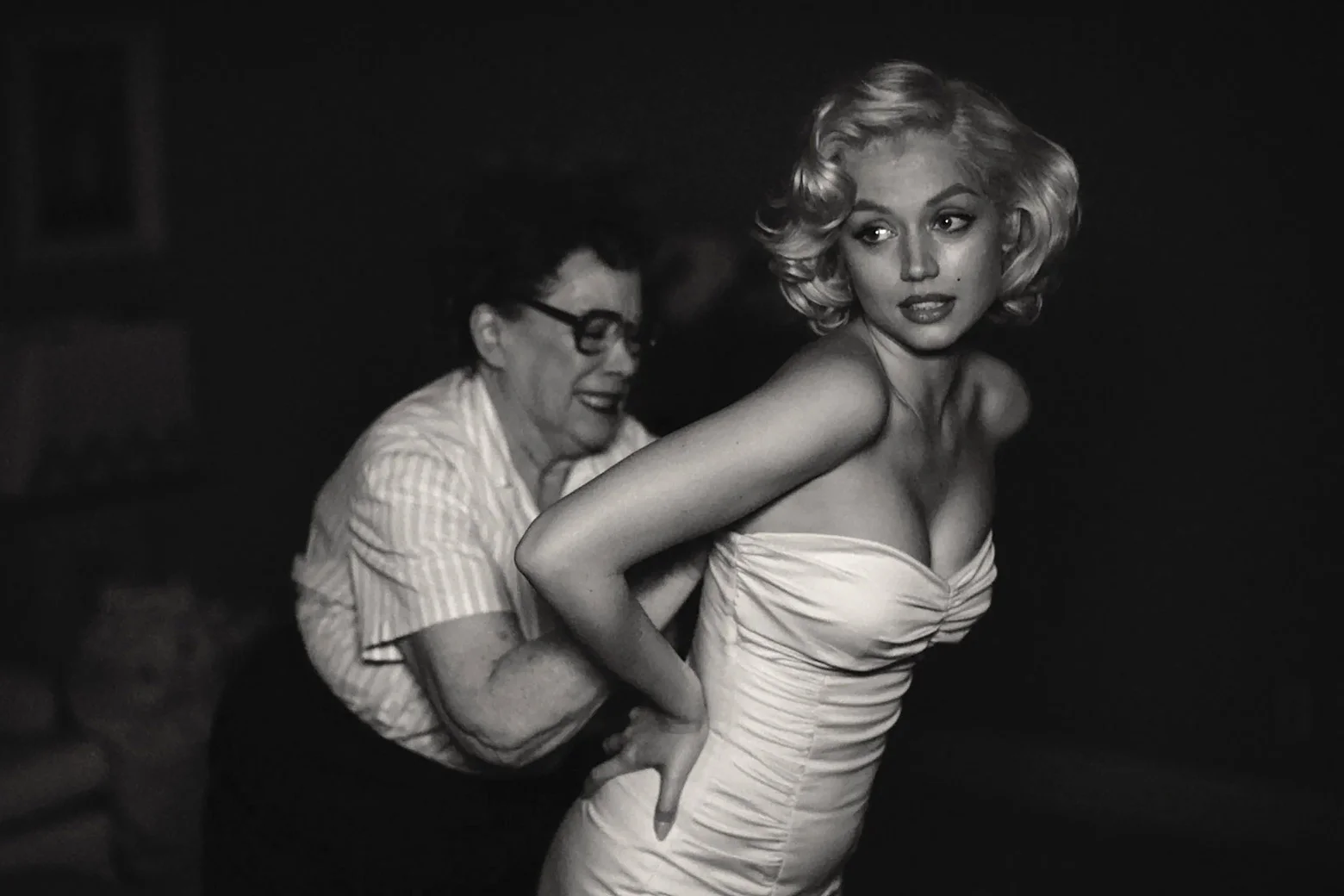Gentlemen prefer BLONDES – or at least, many -prefer Marilyn. Monroe was the quintessential blonde bombshell, the woman every woman wanted to be, and every man wanted to be with. Blonde, starring Ana de Armas in the title role, looks to shed light on the star’s life, whose light burnt out too quickly and soon. Director/writer Andrew Dominik spends far too much time presenting a pathetic pity party for the model-actress and not enough time sharing what made her so incredibly special.
De Armas captures the essence of Monroe but is only allowed to deliver tortured looks and tears. De Armas looks eerily like Marilyn and melds into the role seamlessly. From the breathy gasps and the wide piercing eyes demonstrating every emotion to the brief grimaces of bafflement and the bright, blinding smile: de Armas’s performance nails Marilyn so realistically, the remade, cut-in scenes from Monroe’s films seem like archive footage. It is, frankly, mesmerizing as a performance. All other roles shadow, and this is acutely apparent in the fact that Dominik chooses not to name critical characters in her life – the Playwright (Miller), the baseball player (DiMaggio), and the president (Kennedy), for example.
Because Dominik opts to focus on the darkest aspects of Norma Jean Baker’s past and life, the movie makes it feel like she was the most miserable person in Hollywood with only a sprinkling of happiness ever. His choice to fluctuate between black and white and color likely meant as an artistic choice often distracts from the linear story. I use the term linear loosely because while Dominik does start with Norma Jean as a child, depicting a pretty terrible childhood with her crazy mother and times spent in an orphanage, he jumps to twenty years later when Monroe had broken (by this account – on the casting couch) into Hollywood. There are considerable gaps in the timeline, which punches out key events but does so in montages and leaps in time. Stylistically, the film looks impressive, but much of the story seems exaggerated and unreal – including her relationship with two gay men (one Charlie Chaplin Jr.) who appear to be the only men who made her happy. News to most of us. Making the matter weirder and more unsettling, Dominik chooses to include womb shots of Marilyn’s miscarried babies. We even see from inside her by way of an abortion doctor deploying his speculum and preparing to abort her first child. Unnecessary.
The film’s two-hour and forty-six-minute runtime makes it nearly unbearable and moves me to put only two stars up top for this one. Blonde showcases de Arma’s talent, but if we are to believe Dominik’s telling, Marilyn was more miserable than happy for most of her existence, and no one loved her the way she desperately needed. Still, there is beauty in de Arma’s depiction and performance and in the way that the director wants us to love Marilyn.
